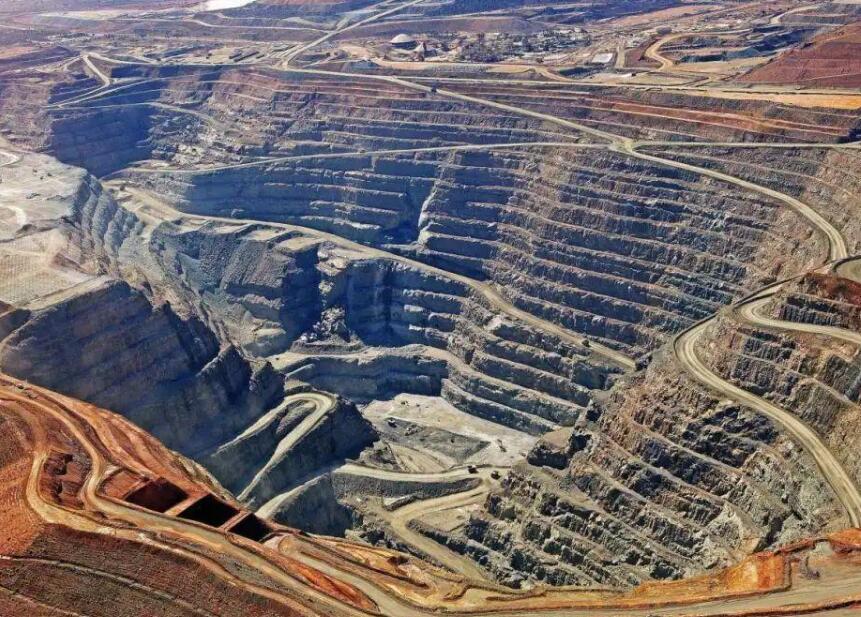China Mining
2024-12-25

Energy minerals
Energy minerals are an important component of China's mineral resources. Coal, oil, and natural gas account for about 93% and 95% of primary energy consumption in the world and China, respectively. Due to the dominant position of mineral energy in primary energy consumption, it has particularly important strategic significance for national economic and social development.
China has a complete variety of energy mineral resources, rich resources, and widespread distribution. The known energy minerals include coal, oil, natural gas, oil shale, uranium, thorium, and others. China's coal resources are quite abundant; according to geological surveys conducted by geologists, the predicted total amount of coal resources within 2000 meters below the surface is 50.592 billion tons. By the end of 1996, there were 5,345 mining areas with proven reserves totaling 10.025 billion tons. The verified reserves in China amount to 2.299 billion tons, ranking third in the world after the CIS and the United States.
Oil is the lifeblood of industry, the foundation of modern industrial civilization, and one of the important energy sources for human survival and development. The rapid development of the oil industry in the 20th century is closely linked to national strategies, global politics, and economic development, leading to significant changes in the world economy, international relations, and people's living standards. China is one of the countries with relatively rich oil resources, widely distributed across 32 oil regions with proven geological reserves of 1.814 billion tons. According to a report by American 'Oil & Gas' in 1997, the world's remaining proven recoverable oil reserves are 139 billion tons; China's remaining proven recoverable reserves announced in 1997 were 2.241 billion tons, ranking 11th in the world. There are a total of 319 basins nationwide; estimates for 145 of these basins indicate a resource amount of 9.3 billion tons; among them, there are confirmed oil fields in 24 basins with a resource amount of 75.89 billion tons, accounting for 84.48% of the total resource amount; there are also 42 basins where oil and gas have been discovered with a resource amount of 7.566 billion tons, accounting for 7.39% of the total resource amount.
Natural gas (including biogas) is one of the important energy mineral resources and a clean energy source with great development prospects both domestically and internationally. China's natural gas resources are quite extensive and are produced to varying degrees in both oil basins and coal basins. The resource amount is also relatively rich; experts predict that China's natural gas resources amount to about 70 trillion cubic meters (with coalbed methane accounting for about half). By the end of 1996, China's remaining recoverable natural gas reserves were 7.060 trillion cubic meters, while the world's remaining recoverable natural gas reserves were 143.95 trillion cubic meters, placing China around 21st in the world.
China is a country with relatively limited uranium mineral resources. According to estimates based on uranium mine reserves provided by China to the International Atomic Energy Agency, China's proven uranium reserves rank after the world's top ten and cannot meet the long-term needs for developing nuclear power. Geothermal resources refer to heat resources within the Earth that can be economically developed and utilized by humans; they are also a form of clean energy. China's geothermal resources are widely distributed and relatively abundant.
Metal minerals
China has a complete variety of metal mineral resources with rich reserves and widespread distribution. There are proven reserves for 54 types of minerals including: iron ore, manganese ore, chromium ore, titanium ore, vanadium ore, copper ore, lead ore, zinc ore, bauxite, magnesium ore, nickel ore, cobalt ore, tungsten ore, tin ore, bismuth ore, molybdenum ore, mercury ore, antimony ore, platinum group metals, germanium ore, gallium ore, indium ore, thallium ore, hafnium ore, rhenium ore, cadmium ore, scandium ore, selenium ore, tellurium ore.
The geological work level for various minerals varies significantly; their resource abundance also differs. Some resources are relatively abundant such as tungsten, molybdenum, tin, antimony, mercury, vanadium, titanium, rare earths, lead, zinc, copper, iron; while others are clearly insufficient such as chromium ore.
Previous article:
The next one:


